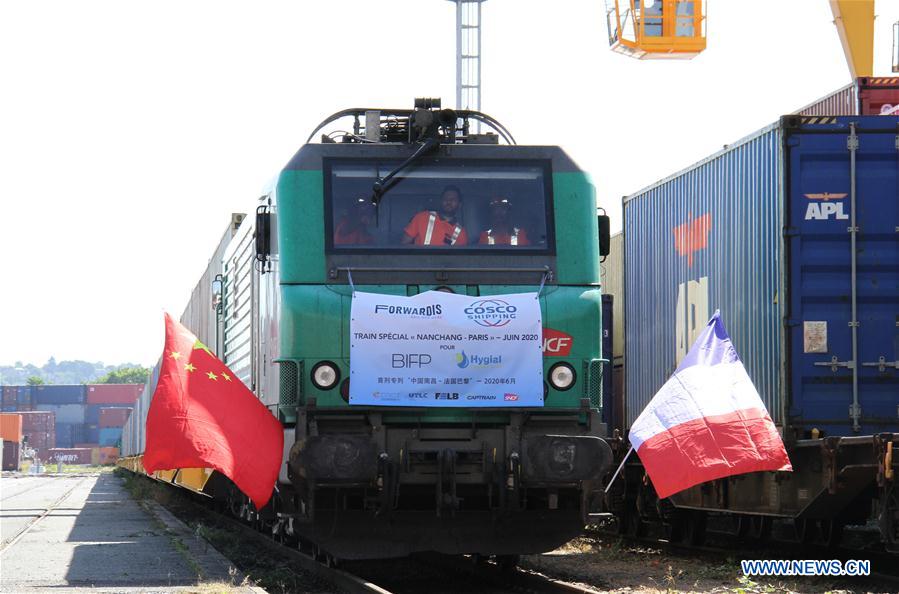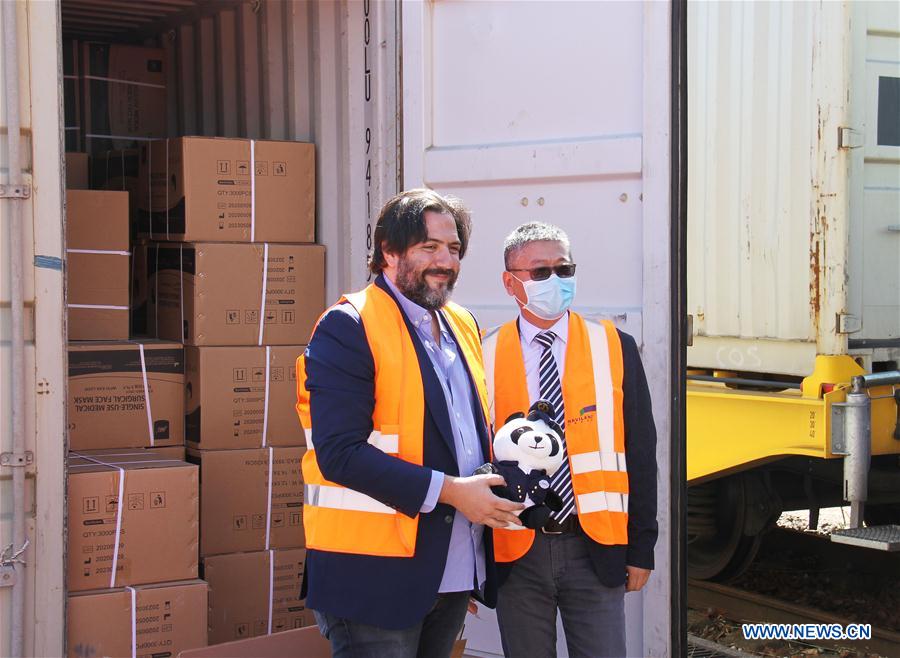China-Europe freight train carrying medical supplies arrives in Paris
After a 19-day journey, a China-Europe cargo train loaded with medical materials arrived in Paris on Tuesday morning, the first freight train dedicated to transport protective materials against COVID-19 directly from China to France.
After a 19-day journey, a China-Europe cargo train loaded with medical materials arrived in Paris on Tuesday morning, the first freight train dedicated to transport protective materials against COVID-19 directly from China to France.

The China-Europe cagro train arrives at Paris, France, June 23, 2020. [Photo/Xinhua]
Departing on June 4 from the city of Nanchang in eastern China, the train has run over 11,920 kilometers through 7 countries before delivering some 20 million surgical masks and gloves, water-soluble bags, contactless gel dispensers and other equipment.
"This 'medical train' from China to France proves that the French-Chinese relations are stronger than ever, with logistics operation now joining scientific cooperation in the fight against COVID 19," Lyazid Benhami, vice-president of the Paris Association of French-Chinese Friendship, told Xinhua.
"In this period of health crisis, we are pleased to note that this important volume of materials transported (to France), including 20 million surgical masks and protective equipment, is up to meet the demand and needs of consumers and the market," he said.
Benhami also noted that the China-Europe freight train opens an opportunity for boosting the trade between France and China. "The 'win-win' approach is very real for everyone, including the environment, businesses and consumers," he said.
The operation of this special freight train was the fruit of cooperation among COSCO Shipping, a Chinese group, and Forwardis, a subsidiary of SNCF (France's national railway company) Logistics, as well as BIFP, a distributor of the Hygial brand.

Representatives pose for a photo after the arrival of the China-Europe cagro train in Paris, France, June 23, 2020. [Photo/Xinhua]
Nicholas Giraud, SNCF Director of International Rail Freight, hailed the rail logistics solution as the most efficient in terms of cost and carrying capacity.
"With the volume of six cargo planes in a single train, the cost of rail transport is 30 times cheaper than that of air transport while 15 times lower in term of carbon footprint. Compared to maritime transport, a journey by train takes nearly half the time," he said.
Xavier Wanderpepen, responsible for China-Europe rail freight activities at Forwardis, said: "Thanks to this train, we wish to offer French and Chinese companies occasional train solutions."
"And we wish to work with China on the development of freight wagons with variable gauge capable of adapting to the situation in Western Europe, Russia and China. In a few years, we will be able to connect China and Europe in 10 days."
Initiated in 2011, the China-Europe rail transport service is seen as an important part of the Belt and Road Initiative to boost trade between China and the countries participating in the program.

